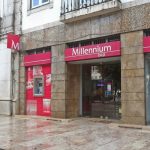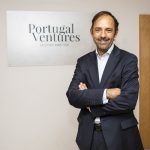A holistic approach to corporate human capital
If companies were run like ant nests or bee colonies, they would be perfect models of efficiency; well-run and profitable ecosystems with each working together as part of an interlocking whole. But they aren’t. They comprise human beings with all their strengths and weaknesses, foibles, egos and petty rivalries. Often, traditional companies, when acquired or merged, bring with them a ‘toxic soup’ of company culture contradictions and conservative and paternalistic hierarchies resistant to change. Enter Paula Oliveira, CEO of SDO Consultants, the firm that challenges traditional ideas with fresh approaches.
SDO – a consultancy that breaks the mould
SDO Consulting is a Portuguese company specialising in human capital, with over 24 years of experience in the Portuguese and Angolan markets.
Owned by human capital pioneer and businesswoman Paula Oliveira, SDO boasts an impressive portfolio of clients, including Efacec, Novabase, NOS, retail chain Fnac and food retailers Jerónimo Martins, to name a few.
SDO offers a holistic 360º integrated consultancy approach based on three pillars: people, culture, leadership. “The ideal approach is always a holistic one, since these three pillars are connected and directly dependent. A company can’t change its recruitment strategy and search for the most talented IT boomers without having the proper culture and leaders in place to welcome them,” says Paula Oliveira.
But it’s not the company A-listers that are the most interesting feature about SDO Consulting. It’s the revolutionary approach it has to changing the way things are done, the traditional way of doing things that have been a maxim for years in some of these organisations, sometimes for generations.
Bringing company workforces into the 21st century as modern, forward-thinking, highly-organised and integrated teams that think creatively, work laterally and are encouraged to be creative decision-makers, questioning rather than meekly following orders from above, is the company’s cornerstone approach.
“SDO’s approach to businesses is an ‘intrusive’ one,” she says, with a knowing smile. “We need to know a lot about a company before being able to design and present a proposal. Even something as relatively simple as a teambuilding workshop needs to be placed within the context of the company culture, people practices, communication style, and more besides,” stresses Paula Oliveira, adding that SDO doesn’t believe in so-called “one-size-fits-all best-selling products” that are common to all businesses these days. “We are the old-fashioned tailor with a future-looking vision.”
The majority shareholding in SDO, which is based in Lisbon’s upmarket Amoreiras district, was acquired by Paula Oliveira two years ago.
“I’ve always done things differently; thought out of the box. I was always one who liked to take risks and do things that weren’t conventional,” she says, adding that her career has been marked by “seizing opportunities”, whether working with major international oil players in Angola or top companies in Portugal.
Impeccably dressed, calm but assertive, she feels comfortable operating in what is still a man’s world in Portuguese corporate life. “When we know who we are, what we want to achieve and where we want to go, things flow naturally,” she confides, admitting that even at university she attracted the attention of some lecturers because of her way of thinking, which enabled her to adopt a new point of view when solving tough questions.
Africa – a catapult to the future
While studying, Paula Oliveira was invited to contribute to projects in the consultancy area and a particular project in Angola in 1994.
“I was still completing my university course when I got the offer. Angola was still at war, but I had heard so much about Africa that I decided to take the risk and go and see for myself what this continent was really like,” she recalls.
Looking back, Paula Oliveira says her experience in Angola exposed her to new realities, which she readily absorbed like a sponge. It was the catapult to the future which made her the businesswoman she is today.
“The complexity of working within a highly-demanding context, where the oil industry’s best management practices co-exist with a country at war, dealing with several nationalities, cultures and social differences on a daily basis, encourages you to develop a different mindset. Skills like creativity, critical thinking and problem-solving are the order of the day. I often say it’s rather like mental gymnastics!” she explains.
When executives in Portugal ask why she stayed in Angola for so long and wonder what kind of visionary ideas she could bring for the future of their companies given her experience in a developing country, her answer is: optimism, strategic vision, focus and resilience, all of which make her believe that everything is possible.
Paula Oliveira does not accept the oft-trotted-out Portuguese trope “Oh, it’s just too difficult” or “it’s impossible”. She says that pessimism is the greatest obstacle to Portuguese economic growth.
“The conservative culture practised by many of our CEOs is stubbornly resistant to new ideas. They say: ‘Why do we need to change if the way we do things has been successful for 20, 25, 40 years?’ This is not about change, it is about evolution,” she says.
Human resource challenge
The challenge facing big companies now, regardless of sector, is the merger between digitalisation and humanisation. “Companies want quick results and efficiency, and want to be taken care of with a personalised service on the one hand while making processes very automatic on the other. How can we, as consultants specialising in people, help this development and future projections while injecting our views and adopt all the speed and efficiency demanded?” she asks.
SDO – a multifaceted team
At SDO, Paula Oliveira has built a professional team of 20, from different disciplines, that is integrated, dynamic and multilingual. It’s flexible and versatile, and has alternative ways of thinking. The team members have different academic backgrounds such as IT, philosophy, psychology and management. The company also uses the services of professionals, some freelance, who often have experience as CEOs and decision-makers. “This is important because it enables us to see different perspectives of the same challenge,” she says.
In the two years since she has taken the helm at SDO, her team has been rebuilt from top to bottom. “We let some people go because they didn’t identify with the model and brought others in, so we could think deeply on a project.
“Sometimes it starts off as a small one, like an assessment for a dozen members of staff, and ends up being a culture change proposal for a client because we started asking questions and they realised that changes were needed to the rest of the business,” she explains.
Mergers and acquisitions can be particularly challenging, and SDO has had experience with Portuguese companies merging with Angolan ones. “An entity is brought by a new shareholder with a different vision and there are two cultures which have to be reformulated into one with a clear vision,” she says.
It often starts with the brand, the more obvious and publicly visible side of the merger, and how customers will react to the brand if the company is taken over by a company from a different country.
“However, we start with the people inside the company and then the brand and marketing. This is a shift in terms of mind-think and is relatively new. This employee branding, which in our view comes first, or at least simultaneously, creates a vision that it’s common to all employees. And then the best aspects of both company cultures and values can be built into the new vision,” she says.
Visions for the future
Paula Oliveira says today companies must think big in all areas of the business, but the single biggest drawback to progress and competitiveness is a conservative mindset that is still at the heart of some of Portugal’s largest corporations.
She believes that jobs like Human Resources Development (HRD) will disappear and that traditional hierarchy structures will be gone; that jobs will become projects and that leaders will take acting roles.
Her recipe for a successful, modern and forward-thinking company is one that has a strong vision of the future and knows where it wants to be in the short, medium and long term – “realistic strategic goals should be set and then you work back from there”.
Pure vertical power tools from upper management should only be used as a last resort. Management and decision-making needs to be transversal at all levels of the company and not rigidly hierarchical. Everything has to relate, be consistent and interlocking. The role of managers should be as enablers of self-organising teams, who can draw upon the full capabilities of a talented staff within them.
“Companies should bring in staff of different ages, from different backgrounds, and with different skill sets into the decision-making process. Many of the 25-35 age group didn’t have an opportunity in Portugal and had to leave, like I did. That needs to change. Portuguese companies are changing but not sufficiently and not fast enough.
“We need to draw on home-grown talent and employ it here, in Portugal, if we truly want to become a prosperous, modern and competitive country, operating on an international playing field.
“Our company leaders need to have the courage to invest in younger talent, and delegate decision-making, let people build upon their greatest ideas with full commitment, because that’s the greatest driver to success,” Paula Oliveira concludes.










